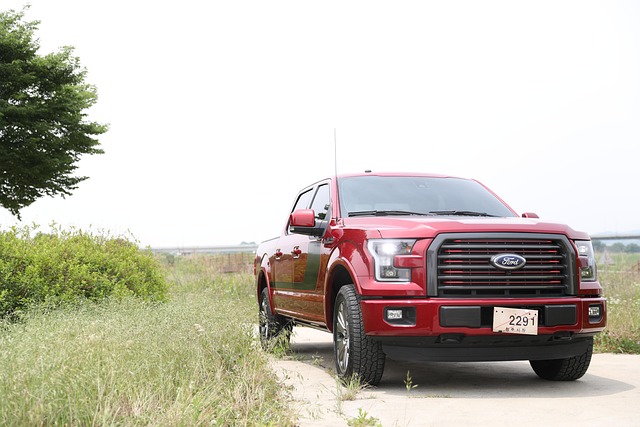Looking to register your car in California? This comprehensive guide breaks down the process step-by-step. From understanding key requirements for California car registration, to gathering essential documents for VIN verification, and selecting the right registration type—we’ve got you covered. Learn how to perform a vehicle identification number (VIN) check, submit your application, and pay fees successfully. Streamline the process today!
- Understand California Car Registration Requirements
- Gather Necessary Documents for VIN Verification
- Perform Vehicle Identification Number (VIN) Check
- Select an Appropriate Registration Type
- Submit Application and Pay Fees
Understand California Car Registration Requirements

Before registering your car in California, it’s crucial to understand the state’s specific requirements. One key step is ensuring proper VIN (Vehicle Identification Number) verification. This process confirms that your vehicle matches the information on its registration papers and helps protect against fraud. In California, you’ll need to complete a VIN inspection conducted by an authorized official or a mobile VIN verifier to ensure your car meets safety standards and emissions requirements.
After purchasing a vehicle, whether new or used, you typically have 30 days from the date of purchase to register it with the California Department of Motor Vehicles (DMV). Proper VIN verification is essential during this process as it verifies the authenticity of your vehicle’s history, including its previous ownership and maintenance records. This ensures that both you and the state have accurate information, promoting safety on California’s roads.
Gather Necessary Documents for VIN Verification

Before you begin the registration process, it’s crucial to gather all the essential documents required for VIN verification in California. The Vehicle Identification Number (VIN) is a unique code that identifies your car, and its accuracy is vital for a successful registration. Ensure you have the following on hand: your vehicle’s registration certificate from the previous state, proof of ownership, and the title document. Additionally, you’ll need to provide a valid driver’s license or state ID card.
For a smoother process, consider using a mobile VIN verifier or conducting a mobile VIN inspection. These services allow you to verify your car’s information quickly and efficiently, often right from the comfort of your home or even while you’re at a California DMV office. This can save time and effort compared to traditional VIN verification methods.
Perform Vehicle Identification Number (VIN) Check

Before registering your car in California, it’s crucial to perform a Vehicle Identification Number (VIN) check. This step is essential for ensuring that the vehicle you’re about to register is legitimate and has not been reported stolen or had its identity tampered with. A VIN verification process helps authorities cross-reference the unique 17-character code with state records, making it a critical part of the registration process.
In California, you can facilitate this process through various methods, including mobile vin verification and vin inspection services that provide quick and convenient solutions. These services allow you to obtain real-time data about the vehicle’s history, ownership details, and any reported issues, thereby streamlining the registration procedure. Whether you opt for a mobile vin inspection or conduct the check yourself at a designated center, ensuring the VIN’s accuracy is a game-changer in securing a seamless car registration experience.
Select an Appropriate Registration Type

When selecting a registration type for your vehicle in California, it’s crucial to consider its purpose and usage. Different types have distinct requirements, including eligibility criteria and fee structures. If you’re planning on using your car primarily for off-road activities or showing, opt for specialized registrations that cater to these unique needs. However, for daily drivers, the standard passenger vehicle registration is typically the most suitable option.
For added peace of mind, especially when dealing with high-value vehicles, consider a mobile VIN inspection or verification service. This process involves a professional coming to your location to conduct a thorough check of your vehicle’s unique Vehicle Identification Number (VIN). It ensures that your car meets all legal standards before registration, including verifying its history and identifying any potential issues.
Submit Application and Pay Fees

After gathering all the required documents, it’s time to submit your application and fees for car registration. This step is crucial in ensuring a smooth and legal ownership transition. You’ll need to fill out the Application for Title and Registration (Form DMV-123), available online or at any California DMV office. Here, you provide essential details about your vehicle, including its make, model, year, and unique VIN (Vehicle Identification Number). This VIN verification is a critical aspect of the registration process, ensuring the accuracy of your vehicle’s information.
Accompanying your application, submit the necessary fees. These costs vary based on your vehicle type and any additional services like mobile VIN inspection or registration renewal. Consider opting for a mobile VIN verification service to save time; this involves a professional visiting you to inspect and verify your vehicle’s details, ensuring a hassle-free experience.
Registering a car in California involves understanding the state’s requirements, gathering essential documents for VIN verification, conducting a vehicle identification number (VIN) check, selecting the right registration type, and submitting an application with relevant fees. By diligently navigating these steps, you’ll ensure your vehicle complies with local laws, facilitating a smooth and legal driving experience within the Golden State. Remember to keep your documentation up-to-date for seamless renewals in future years.



